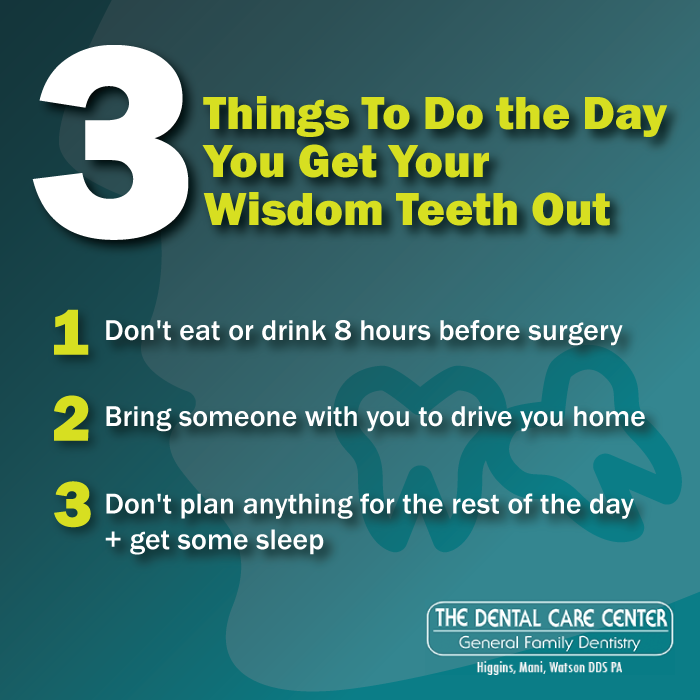
Your wisdom teeth typically start to grow between the ages of 17 and 25. By this age, your jaw is typically fully formed, so when the new teeth start to come in, they can cause problems. They can cause teeth to shift, become impacted (which just means trapped underneath your jaw bone or your gums), and are more susceptible to decay because they are hard to clean.
Because they seem to be much more trouble than they are worth, most dentists will recommend having them extracted. This is a common procedure, in fact, around 10 million wisdom teeth are extracted every year in America. Often, the scariest part of the surgery is the unknown, so here’s what to expect:
Once you and your dentist decide it’s time for you to get your wisdom teeth removed, they’ll often refer you to an oral surgeon (unless they do the surgery in-house.) You’ll then meet with your surgeon so they can go over what exactly will happen the day of the surgery, and you can schedule your surgery appointment. Make sure to arrange to bring someone with you on the day of your procedure to drive you home.
You shouldn’t have anything to eat or drink 8 hours before the surgery. If you do eat or drink, they’ll likely have to reschedule so be sure to refrain. Once you sign all of the paperwork, you’ll be taken and prepped for surgery. The nurse will get you comfortable, run through the procedure again, and then begin administering anesthesia. Once you’re under anesthesia, The surgeon will remove the teeth, and add some dissolvable stitches, if needed. The procedure usually takes around 45 minutes. You won’t be aware of the procedure at all, and when you come out of you won’t feel or remember anything. Your oral surgeon will likely recommend you go home and sleep the rest of the day, which won’t be difficult due to the lingering effects of the sedatives.\
After your surgery, it is important to follow all the surgeon’s directions to avoid having any complications. They’ll likely be certain foods you can and can’t eat hours and even days after surgery. You’ll also be given medication to help manage pain. Finally, when you do eat, you’ll need to rinse your mouth with a syringe to ensure that no food is trapped in the gums where the teeth were removed. Although you’ll have to continue cleaning out your mouth for longer, you should be able to return to your daily routine a few days after surgery.
If you’re worried about your wisdom teeth and want to talk to a dentist, contact us today!